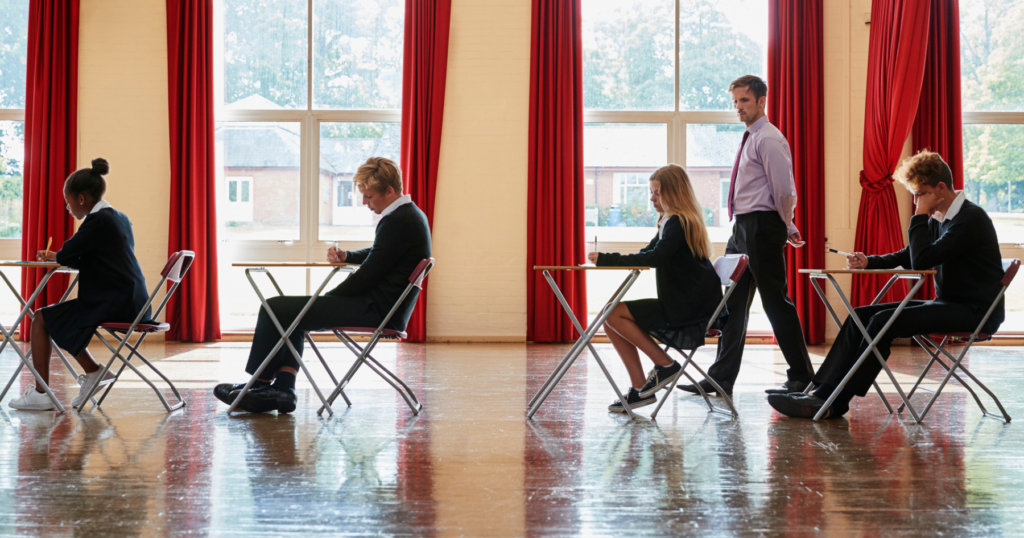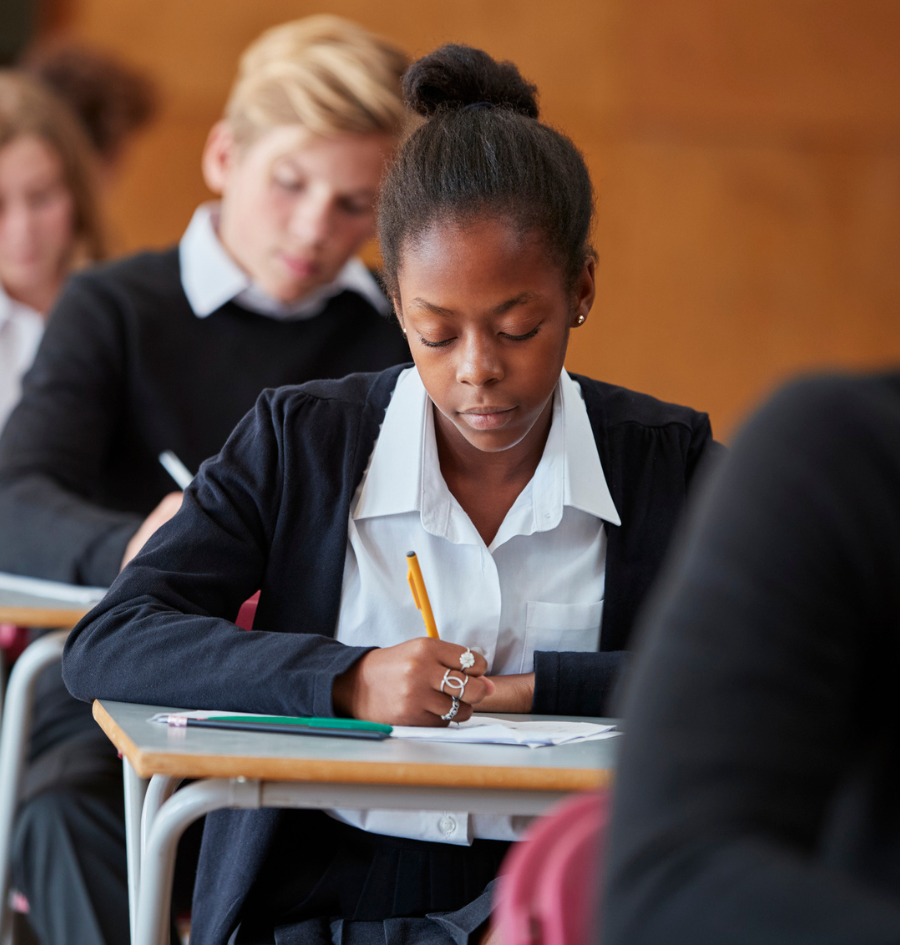Mock exams are important for preparing students for their final assessments, yet many educators struggle to implement an effective preparation strategy that truly benefits their pupils.
Drawing from over a decade of teaching experience, this comprehensive guide offers practical techniques, proven revision strategies and essential tips to help you maximise your students’ potential during mock exams.
Whether you’re a newly qualified teacher or a seasoned professional, these insights will transform how you approach mock exam preparation. Read on to discover how to create a balanced, stress-free environment that encourages both academic success and student wellbeing.
Understanding the Importance of Mock Exams
Mock exams represent a crucial milestone in a pupil’s academic journey, serving as an invaluable practice run for the real assessments ahead. GCSE mock exams are essential practice assessments designed to mimic the real examination conditions, helping students identify knowledge gaps and develop important skills such as time management and stress handling.
These preliminary examinations provide essential feedback to both teachers and pupils alike, enabling targeted revision strategies and areas for improvement to be identified and addressed effectively. Through exposure to authentic exam conditions, varied question types and clear expectations, pupils can develop their confidence and capabilities in a supportive environment.
Particularly for GCSE students, these mock examinations prove instrumental in helping them familiarise themselves with proper time management techniques and the precise format they’ll encounter in their final papers. The significance of GCSE exams lies in their ability to boost students’ confidence and performance during the real assessments.
Exam Preparation Strategies
Setting up for mock exams doesn’t have to feel overwhelming – it’s all about taking a smart, structured approach. Breaking down the syllabus into bite-sized chunks makes everything more manageable, and here’s where you can really help your students shine:
Start by mapping out a realistic study timeline – think of it as creating a GPS for their revision journey. Starting revision early is key, as it takes the pressure off and lets students tackle topics at a comfortable pace.
Create a well-structured revision timetable. This serves as the foundation for effective exam preparation. Use feedback from mock results to adapt revision strategies and allocate specific topics or subjects over a set timeline to enhance learning and retention.
Past papers are absolute gold dust for mock preparation. They give students the chance to practise their skills in real-world conditions and get familiar with how questions are worded.
Remember, the goal isn’t to cram – it’s to build confidence through steady, focused preparation. Encourage your pupils to spend extra time on subjects they find challenging, but keep the overall schedule balanced and achievable.

Using Past Papers to Prepare for Mock Exams
Mastering mock exams is all about strategic preparation, and past papers are your secret weapon in this process. Here’s how to make the most of them:
- Use past papers and mock papers as powerful learning tools. They’re not just practice – they’re a window into exactly what pupils can expect on exam day, giving them invaluable insight into question styles and overall format. Mock papers simulate the exam environment, providing structured practice under timed conditions.
- Introduce timed practice sessions that mirror real exam conditions. This helps students develop crucial time management skills and builds their confidence in handling pressure-filled scenarios.
- Pay close attention to recurring mistakes. These aren’t setbacks – they’re opportunities for targeted support. By identifying and addressing these common stumbling blocks, you can provide precise feedback that truly helps pupils improve.
The key is transforming past papers and mock papers from intimidating documents into supportive learning resources that empower your students to perform at their best.
Creating a Supportive Environment
Creating a positive and encouraging classroom atmosphere in the lead-up to mock exams is essential for helping students feel supported and motivated. Simulating a realistic exam environment through timed practices with past papers can significantly reduce anxiety, build confidence, and familiarise pupils with the format and expectations of the actual assessments.
It’s important to emphasise that mock exams are a learning opportunity rather than just a measure of achievement, encouraging students to focus on progress rather than perfection. Additionally, addressing any anxiety or apprehension they may have and providing reassurance can help create a more relaxed and productive mindset, ensuring they approach their exams with confidence.
Providing Constructive Feedback and Encouragement
Give pupils constructive feedback, highlighting strengths and weaknesses to help them tackle real exam challenges. Encourage self-reflection so they can identify areas for improvement, and provide support to develop effective exam strategies.
Preparing Pupils for the Mock Exam Day
Ensure pupils are familiar with the exam format, including the types of questions they will encounter.
Familiarise students with the exam hall setting, including the formal environment, invigilators, and time constraints. This helps reduce anxiety and enhances performance on the actual exam day.
Review the syllabus and content areas covered in the mock exams.
Focus on key concepts, theories, formulas, and relevant case studies.
After the Mock Exams: Review and Revise
Take a good look at the mock exam results and spot any areas that need improvement. Comparing mock exams to real ones can really help in understanding the structure, content, and pressure of the actual assessments.
Focus on tricky topics and tweak the study plan to spend more time on them. It’s also important to encourage pupils to reflect on their performance, recognise where they can improve, and take charge of their own learning.
Encourage pupils to see mock exams as a learning opportunity, rather than a source of stress.

Evaluating Progress and Adjusting the Approach
Keep track of pupils’ progress regularly and tweak the approach when needed.
It’s also important to understand how exam boards shape the format of upcoming maths and physics exams. They’re expected to provide equation sheets for certain years, which means students might need to adjust how they prepare.
Mock exam results can be really useful for shaping teaching and learning, helping to fine-tune the curriculum and teaching strategies. Finally, encourage pupils to take charge of their own learning by setting goals and targets to improve.
Final Exam Preparation Tips
Encourage pupils to revise early, starting revision well in advance of the final exams.
Create a well-structured revision timetable. Use feedback from mock results to adapt revision strategies and allocate specific topics or subjects over a set timeline to enhance learning and retention.
Use past papers to prepare for the final exams, helping pupils get familiar with the exam format and types of questions.
Focus on areas where pupils make repeated mistakes, providing targeted feedback and encouragement.
Encourage pupils to take care of their physical and mental health, getting plenty of sleep and eating well.
Remind pupils that the final exams are an opportunity to showcase their knowledge and skills, and that they are well-prepared.


